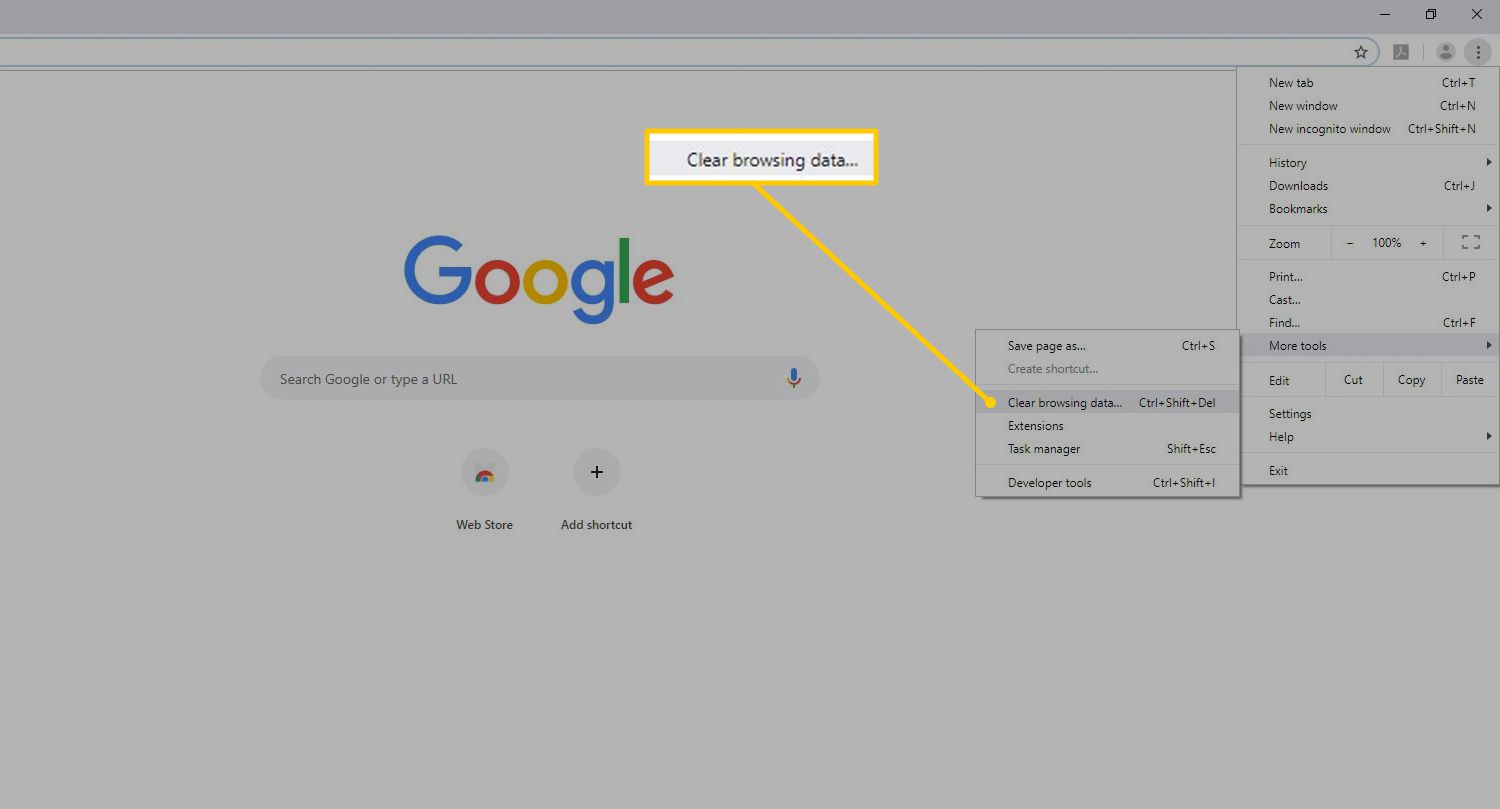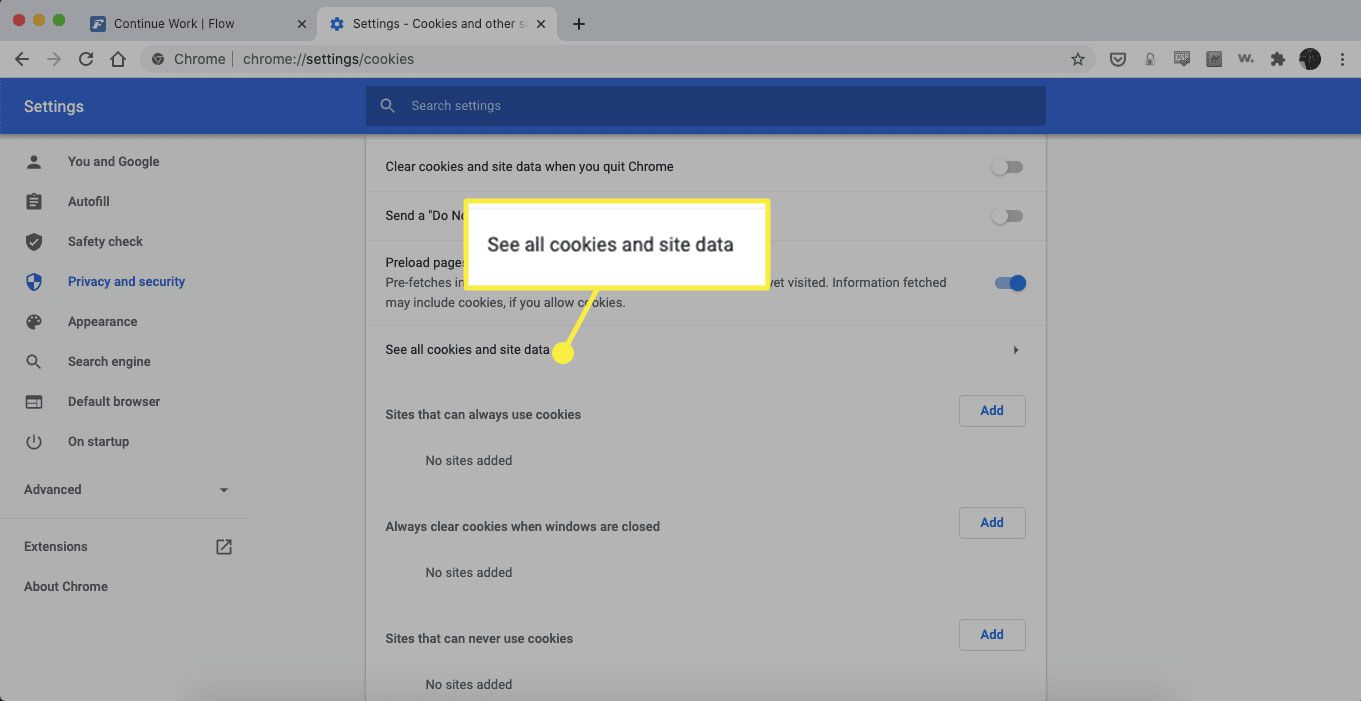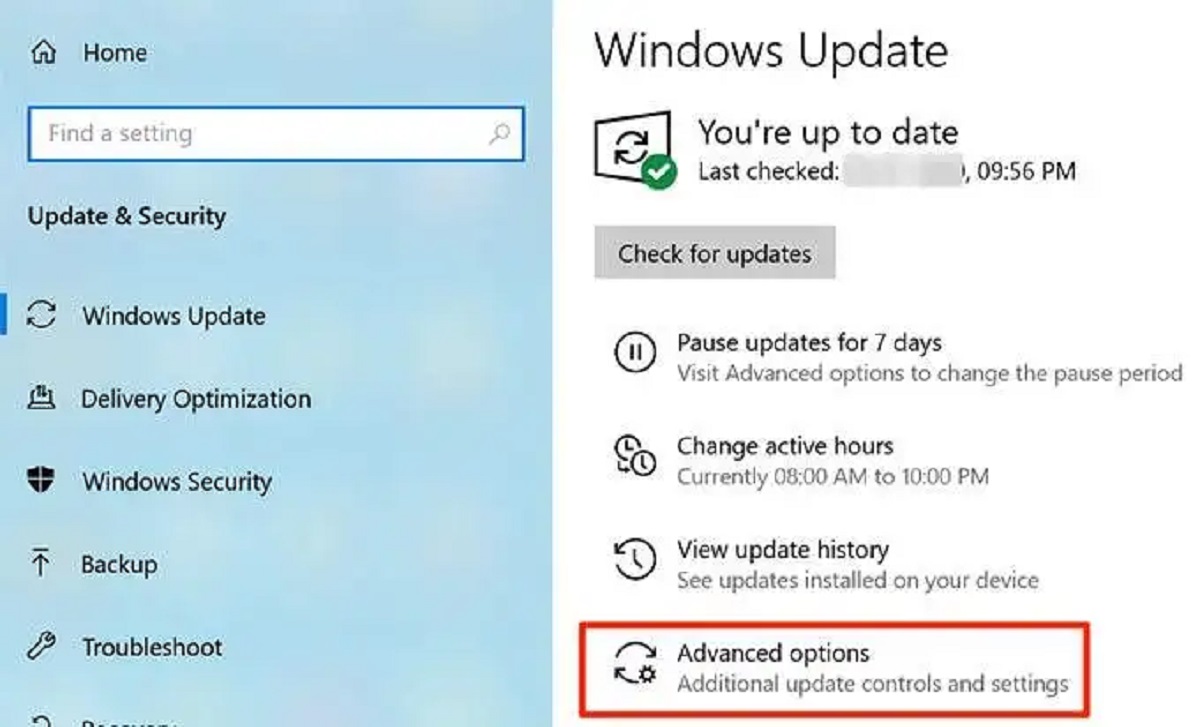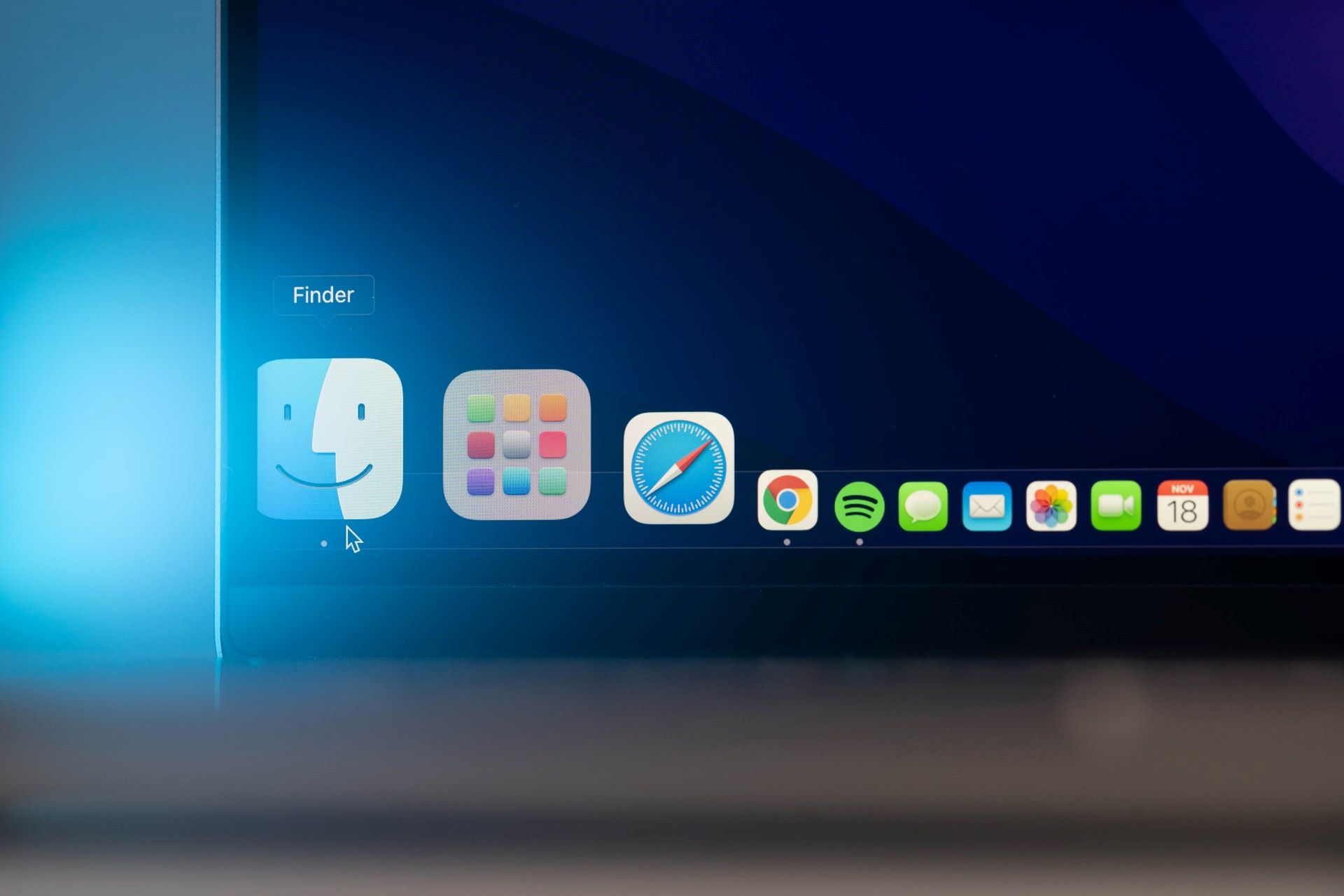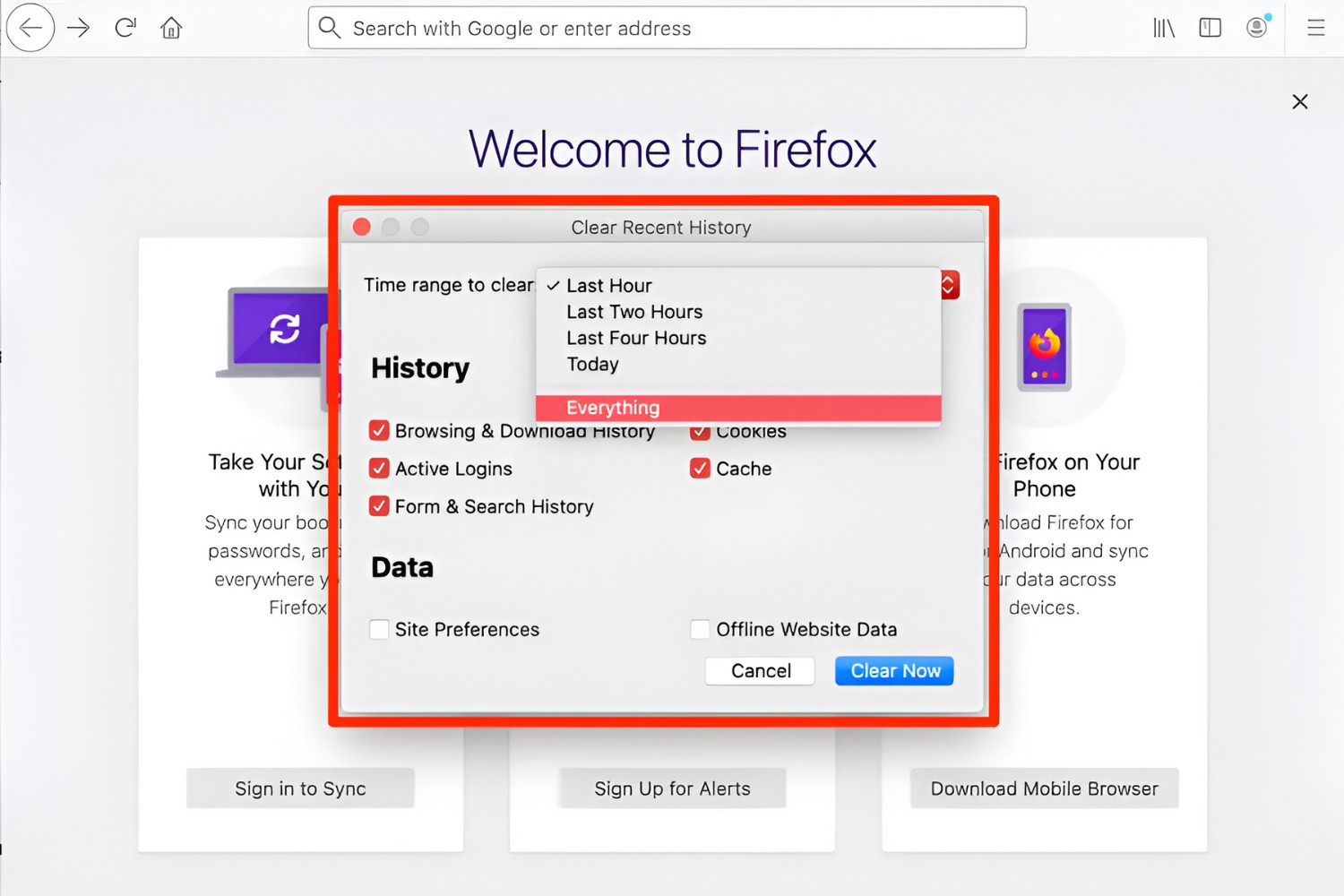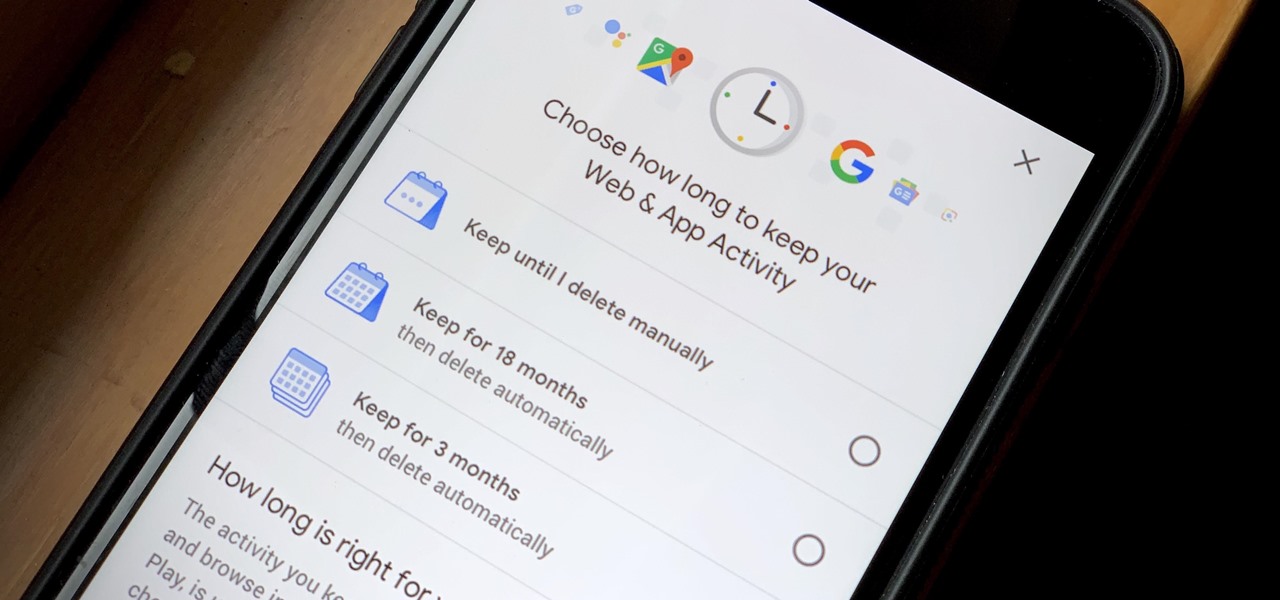Introduction
Welcome to this guide on how to clear cookies on your PC. In today’s digital age, cookies play a crucial role in enhancing the browsing experience by storing information about a user’s preferences and activities on websites. While cookies can be helpful in providing personalized content and streamlining the functionality of websites, there are times when you may need to clear them.
But what exactly are cookies? In simple terms, cookies are small text files that are created by websites you visit and stored on your computer. They contain data such as login information, user preferences, and browsing behavior. This data is then used by the website to remember your preferences and provide a more tailored experience when you visit again.
Clearing cookies becomes necessary in various situations. For example, you might want to clear cookies as a troubleshooting step if you’re experiencing issues with a specific website. Additionally, clearing cookies can improve your privacy by removing any saved data that could be used for targeted advertising or tracking.
The process of clearing cookies may vary slightly depending on the web browser you’re using. In this guide, we will cover the steps to clear cookies in popular browsers such as Google Chrome, Mozilla Firefox, Microsoft Edge, Internet Explorer, Safari, Opera, and Brave. Whether you’re using a PC for work, entertainment, or personal use, this guide will help you clear the cookies effectively.
What are cookies?
Cookies are an integral part of the modern web browsing experience. They are small text files that are created by websites you visit and stored on your computer. These files contain information about your browsing activity, login details, preferences, and other data that helps enhance your online experience.
When you visit a website, it sends a cookie to your browser, which then stores it on your computer’s hard drive. This cookie acts as a reference point for the website when you visit it again in the future. It allows the website to remember certain information about you, such as your username, language preference, or items you added to your shopping cart.
There are two main types of cookies: session cookies and persistent cookies. Session cookies are temporary and are deleted as soon as you close your browser. They are used to track your activities within a single browsing session, ensuring that your logged-in status is maintained and that you can navigate through different pages on the website without having to re-enter your credentials.
Persistent cookies, on the other hand, are stored on your computer for a longer period of time. They have an expiration date and remain on your computer even after you close your browser. Persistent cookies are responsible for remembering your preferences and settings when you revisit a website, allowing for a more personalized experience.
Cookies play a critical role in improving the functionality and usability of websites. They enable websites to deliver customized content, remember user preferences, and provide targeted advertising. For example, cookies can remember your language preference, display personalized recommendations based on your browsing behavior, or remember the items in your shopping cart.
While cookies are generally harmless and useful, there can be concerns regarding user privacy and security. Some cookies can track your online behavior across multiple websites, which raises privacy concerns for some users. Additionally, cookies can store sensitive information, such as login credentials, which can be a security risk if accessed by unauthorized individuals.
That is why it’s important to understand how to manage and clear cookies on your PC. Clearing cookies periodically can help protect your privacy and ensure a clean browsing experience. In the following sections, we will explore how to clear cookies in different web browsers, empowering you with the knowledge to take control of your online privacy.
Why Clear Cookies?
Clearing cookies on your PC can provide several benefits, ranging from improving privacy to troubleshooting website issues. Here are the main reasons why you might consider clearing cookies:
Privacy: Cookies can track your browsing activity and store personal information, which may raise concerns about privacy. By clearing cookies, you remove any stored data that could be used for targeted advertising or tracking your online behavior across different websites.
Security: Certain cookies store sensitive information such as login credentials. Clearing cookies regularly reduces the risk of such information falling into the wrong hands, particularly if you share your PC with others or use public computers.
Storage Space: Over time, cookies can accumulate and take up valuable storage space on your computer. Clearing cookies frees up this space, which can help improve overall system performance and speed.
Fresh Start: Clearing cookies can give you a fresh start when browsing websites. By removing stored data, you ensure that your interactions with websites are not influenced by past preferences or settings.
Troubleshooting: If you encounter issues with a specific website, clearing cookies can be a helpful troubleshooting step. Sometimes, corrupt or outdated cookies can cause problems with website functionality, and clearing them can resolve these issues.
Cross-Device Consistency: Clearing cookies ensures that your browsing experience remains consistent across different devices. For example, if you clear cookies on your PC, the websites you visit on your smartphone or tablet will not remember your previous interactions.
It’s important to note that clearing cookies will log you out of any websites that you were previously logged into, and some websites may require you to re-enter certain preferences or settings. However, this is a small trade-off for the privacy and security benefits gained by clearing cookies.
In the following sections, we will delve into the specific steps for clearing cookies in various web browsers, so you can choose the method that suits your needs and preferences. With this knowledge, you’ll be able to take control of your online privacy and enjoy a cleaner browsing experience.
How to Clear Cookies in Different Browsers
Clearing cookies is a straightforward process that can be done within your web browser’s settings. In this section, we will outline the steps to clear cookies in popular web browsers, including Google Chrome, Mozilla Firefox, Microsoft Edge, Internet Explorer, Safari, Opera, and Brave.
Clearing Cookies in Google Chrome:
- Open Google Chrome and click on the three-dot menu icon in the top-right corner.
- Select “Settings” from the dropdown menu.
- Scroll down and click on “Advanced” to expand more options.
- Under the “Privacy and Security” section, click on “Clear browsing data”.
- Select the time range for which you want to clear cookies and other browsing data.
- Check the box next to “Cookies and other site data”. You can also choose to clear other types of data like browsing history, cached images, and more.
- Click on the “Clear data” button to delete the selected data.
Clearing Cookies in Mozilla Firefox:
- Open Mozilla Firefox and click on the three-line menu icon in the top-right corner.
- Select “Options” from the dropdown menu.
- In the left sidebar, click on “Privacy & Security”.
- Scroll down to the “Cookies and Site Data” section.
- Click on the “Clear Data” button.
- Check the box next to “Cookies and Site Data”. You can also choose to clear other types of data.
- Click on the “Clear” button to remove the selected data.
Clearing Cookies in Microsoft Edge:
- Open Microsoft Edge and click on the three-dot menu icon in the top-right corner.
- Select “Settings” from the dropdown menu.
- Scroll down and click on “Privacy, search, and services”.
- Under the “Clear browsing data” section, click on “Choose what to clear”.
- Check the box next to “Cookies and other site data”. You can also choose to clear other types of data.
- Click on the “Clear” button to delete the selected data.
Clearing Cookies in Internet Explorer:
- Open Internet Explorer and click on the gear icon in the top-right corner.
- Select “Internet Options” from the dropdown menu.
- In the “General” tab, under the “Browsing history” section, click on the “Delete” button.
- Check the box next to “Cookies and website data”. You can also choose to clear other types of data.
- Click on the “Delete” button to remove the selected data.
Clearing Cookies in Safari:
- Open Safari and click on “Safari” in the menu bar.
- Select “Preferences” from the dropdown menu.
- In the new window, click on the “Privacy” tab.
- Click on the “Manage Website Data” button.
- Click on the “Remove All” button to delete all cookies and website data.
- Click on “Remove Now” to confirm.
Clearing Cookies in Opera:
- Open Opera and click on the “Opera” menu in the top-left corner.
- Select “Settings” from the dropdown menu.
- In the left sidebar, click on “Privacy & security”.
- Scroll down to the “Privacy” section.
- Click on the “Clear browsing data” button.
- Choose the time range and check the box next to “Cookies and other site data”. You can also choose to clear other types of data.
- Click on the “Clear data” button to remove the selected data.
Clearing Cookies in Brave:
- Open Brave and click on the three-line menu icon in the top-right corner.
- Select “Settings” from the dropdown menu.
- In the left sidebar, click on “Privacy & security”.
- Scroll down to the “Cookies and other site data” section.
- Click on the “Clear browsing data” button.
- Choose the time range and check the box next to “Cookies and other site data”. You can also choose to clear other types of data.
- Click on the “Clear data” button to delete the selected data.
By following these steps, you can easily clear cookies in different web browsers. Remember to carefully review the options and choose the data you want to clear to ensure you maintain a satisfactory browsing experience.
Clearing Cookies in Google Chrome
Google Chrome is one of the most popular web browsers, and if you use it as your primary browser, you may want to know how to clear cookies within its settings. Follow the steps below to clear cookies in Google Chrome:
- Open Google Chrome on your computer.
- Click on the three-dot menu icon located in the top-right corner of the browser window.
- In the dropdown menu, select “Settings”.
- Scroll down and click on “Advanced” to expand additional settings.
- Under the “Privacy and Security” section, click on “Clear browsing data”.
- A popup window will appear with various options. From the “Time range” dropdown menu, choose the time period for which you want to clear cookies. You can select “Last hour,” “Last 24 hours,” “Last 7 days,” “Last 4 weeks,” or “All time” to clear all cookies.
- Make sure the checkbox next to “Cookies and other site data” is checked. You can also choose to clear other types of data like browsing history, cached images, and more.
- Review the other checkboxes and select any additional data you want to clear.
- Click on the “Clear data” button to initiate the clearing process.
Google Chrome will now clear the cookies and other selected data based on your chosen time range. It may take a few seconds to complete the process, depending on the amount of data to be cleared. Once cleared, the browser may automatically refresh, and you will be logged out of any websites you were previously logged into.
Clearing cookies in Google Chrome helps protect your privacy by removing stored data that could be used for targeted advertising or tracking your online behavior. It can also resolve issues with specific websites, such as login problems or errors that may occur due to outdated or corrupt cookies.
However, keep in mind that clearing cookies also means that any saved preferences or settings for websites will be deleted. For example, websites that previously remembered your language preference or displayed personalized recommendations based on your browsing behavior will no longer have access to that information.
By knowing how to clear cookies in Google Chrome, you can take control of your online privacy and ensure a clean browsing experience. Clearing cookies periodically is a good practice to maintain your privacy and security while using the internet.
Clearing Cookies in Mozilla Firefox
If you use Mozilla Firefox as your preferred web browser, clearing cookies is a simple process that can be done within the browser’s settings. Here are the steps to clear cookies in Mozilla Firefox:
- Open Mozilla Firefox on your computer.
- Click on the three-line menu icon located in the top-right corner of the browser window.
- In the dropdown menu, select “Options”.
- In the left sidebar, click on “Privacy & Security”.
- Scroll down to the “Cookies and Site Data” section.
- Click on the “Clear Data” button.
- A dialog box will appear with various options. Ensure that the checkbox next to “Cookies and Site Data” is checked. You can also choose to clear other types of data like browsing history, cache, and more.
- Review the other checkboxes and select any additional data you want to clear.
- Click on the “Clear” button to initiate the clearing process.
Once you click “Clear”, Mozilla Firefox will start clearing the cookies and other selected data. This may take a few seconds, depending on the amount of data to be cleared. After the process is complete, the browser may automatically refresh, and you will be logged out of any websites you were previously logged into.
Clearing cookies in Mozilla Firefox is beneficial for maintaining your privacy and security. By removing stored data, you can prevent targeted advertising and tracking of your online behavior. Moreover, clearing cookies can resolve issues with specific websites, such as login problems or errors caused by outdated or corrupt cookies.
However, it’s important to note that clearing cookies also means that any personalized settings or preferences saved by websites will be deleted. For example, saved login information, language preferences, or personalized recommendations based on your browsing behavior will no longer be accessible.
Regularly clearing cookies in Mozilla Firefox allows you to have a fresh start while browsing the web. It can also free up storage space on your computer and improve overall browser performance.
Now that you know how to clear cookies in Mozilla Firefox, you can take control of your online privacy and ensure a cleaner and more secure browsing experience. Clearing cookies periodically is a proactive measure to protect your privacy and enjoy a smoother browsing experience.
Clearing Cookies in Microsoft Edge
If you use Microsoft Edge as your web browser, clearing cookies is a simple process that can be done within the browser’s settings. Here are the steps to clear cookies in Microsoft Edge:
- Open Microsoft Edge on your computer.
- Click on the three-dot menu icon located in the top-right corner of the browser window.
- In the dropdown menu, select “Settings”.
- Scroll down and click on “Privacy, search, and services”.
- Under the “Clear browsing data” section, click on “Choose what to clear”.
- A dialog box will appear, presenting various options. Ensure that the checkbox next to “Cookies and other site data” is checked. You can also choose to clear other types of data like browsing history, cache, and more.
- Review the other checkboxes and select any additional data you want to clear.
- Click on the “Clear” button to initiate the clearing process.
Once you click “Clear,” Microsoft Edge will start clearing the cookies and other selected data. This may take a few moments, depending on the amount of data to be cleared. Once the process is complete, the browser may automatically refresh, and you will be logged out of any websites you were previously logged into.
Clearing cookies in Microsoft Edge is essential for maintaining your privacy and security. By removing stored data, you can prevent targeted advertising and tracking of your online behavior. Additionally, clearing cookies can resolve issues with specific websites, such as login problems or errors caused by outdated or corrupt cookies.
It is important to note that clearing cookies will also remove any personalized settings or preferences saved by websites. This includes saved login information, language preferences, or personalized recommendations based on your browsing behavior.
Regularly clearing cookies in Microsoft Edge allows you to have a fresh start while browsing the web. It can also free up storage space on your computer and improve overall browser performance.
Now that you know how to clear cookies in Microsoft Edge, you can take control of your online privacy and enjoy a cleaner and more secure browsing experience. Clearing cookies periodically is a proactive measure to protect your privacy and ensure a smoother browsing experience.
Clearing Cookies in Internet Explorer
If you’re using Internet Explorer as your web browser, clearing cookies is a simple process that can be done within the browser’s settings. Follow the steps below to clear cookies in Internet Explorer:
- Open Internet Explorer on your computer.
- Click on the gear icon located in the top-right corner of the browser window.
- In the dropdown menu, select “Internet Options”.
- In the “General” tab, under the “Browsing history” section, click on the “Delete” button.
- A new window will appear with various options. Check the box next to “Cookies and website data”. You can also choose to clear other types of data like browsing history, cache, and more.
- Review the other checkboxes and select any additional data you want to clear.
- Click on the “Delete” button to initiate the clearing process.
Once you click “Delete,” Internet Explorer will start clearing the cookies and other selected data. This may take a few moments, depending on the amount of data to be cleared. After the process is complete, the browser may automatically refresh, and you will be logged out of any websites you were previously logged into.
Clearing cookies in Internet Explorer is important for maintaining your privacy and security. By removing stored data, you can prevent targeted advertising and tracking of your online behavior. Additionally, clearing cookies can resolve issues with specific websites, such as login problems or errors caused by outdated or corrupt cookies.
Keep in mind that clearing cookies will also remove any personalized settings or preferences saved by websites. This includes saved login information, language preferences, or personalized recommendations based on your browsing behavior.
Regularly clearing cookies in Internet Explorer allows you to have a fresh start while browsing the web. It can also free up storage space on your computer and contribute to improving overall browser performance.
Now that you know how to clear cookies in Internet Explorer, you can take control of your online privacy and enjoy a cleaner and more secure browsing experience. Clearing cookies periodically is a proactive measure to protect your privacy and ensure a smoother browsing experience.
Clearing Cookies in Safari
If you’re using Safari as your web browser on a Mac, clearing cookies is a simple process that can be done within the browser’s settings. Here are the steps to clear cookies in Safari:
- Open Safari on your Mac computer.
- Click on “Safari” in the menu bar at the top of the screen.
- In the dropdown menu, select “Preferences”.
- A new window will appear with various tabs. Click on the “Privacy” tab.
- Within the “Privacy” tab, click on the “Manage Website Data” button.
- A dialog box will appear, displaying a list of stored website data, including cookies.
- Click on the “Remove All” button to delete all cookies and website data.
- Click on “Remove Now” to confirm the deletion.
Once you click “Remove All” and confirm the deletion, Safari will start clearing the cookies and other website data. This process may take a few moments, depending on the amount of data to be cleared.
Clearing cookies in Safari is important for maintaining privacy and security. By removing stored data, you can prevent targeted advertising and tracking of your online behavior. Additionally, clearing cookies can resolve issues with specific websites, such as login problems or errors caused by outdated or corrupt cookies.
Keep in mind that clearing cookies will also remove any personalized settings or preferences saved by websites. This includes saved login information, language preferences, or personalized recommendations based on your browsing behavior.
Regularly clearing cookies in Safari allows you to have a fresh start while browsing the web. It can also free up storage space on your computer and contribute to improving overall browser performance.
Now that you know how to clear cookies in Safari, you can take control of your online privacy and enjoy a cleaner and more secure browsing experience. Clearing cookies periodically is a proactive measure to protect your privacy and ensure a smoother browsing experience.
Clearing Cookies in Opera
If you use Opera as your web browser, clearing cookies is a simple process that can be done within the browser’s settings. Here are the steps to clear cookies in Opera:
- Open Opera on your computer.
- Click on the “Opera” menu in the top-left corner of the browser window.
- In the dropdown menu, select “Settings”.
- In the left sidebar, click on “Privacy & security”.
- Scroll down to the “Privacy” section.
- Click on the “Clear browsing data” button.
- A dialog box will appear, presenting various options.
- Choose the time range for which you want to clear cookies and other browsing data. You can select “the past hour,” “the past 24 hours,” “the past 7 days,” “the past 4 weeks,” or “all time” to clear all cookies.
- Ensure that the checkbox next to “Cookies and other site data” is checked. You can also choose to clear other types of data like browsing history, cache, and more.
- Review the other checkboxes and select any additional data you want to clear.
- Click on the “Clear data” button to initiate the clearing process.
Once you click “Clear data,” Opera will start clearing the cookies and other selected data. This may take a few moments, depending on the amount of data to be cleared. After the process is complete, the browser may automatically refresh, and you will be logged out of any websites you were previously logged into.
Clearing cookies in Opera is important for maintaining your privacy and security. By removing stored data, you can prevent targeted advertising and tracking of your online behavior. Additionally, clearing cookies can resolve issues with specific websites, such as login problems or errors caused by outdated or corrupt cookies.
However, it’s important to note that clearing cookies will also remove any personalized settings or preferences saved by websites. This includes saved login information, language preferences, or personalized recommendations based on your browsing behavior.
Regularly clearing cookies in Opera allows you to have a fresh start while browsing the web. It can also free up storage space on your computer and contribute to improving overall browser performance.
Now that you know how to clear cookies in Opera, you can take control of your online privacy and enjoy a cleaner and more secure browsing experience. Clearing cookies periodically is a proactive measure to protect your privacy and ensure a smoother browsing experience.
Clearing Cookies in Brave
If you use Brave as your web browser, clearing cookies is a simple process that can be done within the browser’s settings. Here are the steps to clear cookies in Brave:
- Open Brave on your computer.
- Click on the three-line menu icon located in the top-right corner of the browser window.
- In the dropdown menu, select “Settings”.
- Within the left sidebar, click on “Privacy & security”.
- Scroll down to the “Cookies and other site data” section.
- Click on the “Clear browsing data” button.
- A dialog box will appear with various options.
- Choose the time range for which you want to clear cookies and other site data. You can select “the past hour,” “the past 24 hours,” “the past 7 days,” “the past 4 weeks,” or “all time” to clear all cookies.
- Ensure that the checkbox next to “Cookies and other site data” is checked. You can also choose to clear other types of data like browsing history, cache, and more.
- Review the other checkboxes and select any additional data you want to clear.
- Click on the “Clear data” button to initiate the clearing process.
Once you click “Clear data,” Brave will start clearing the cookies and other selected data. This may take a few moments, depending on the amount of data to be cleared. After the process is complete, the browser may automatically refresh, and you will be logged out of any websites you were previously logged into.
Clearing cookies in Brave is essential for maintaining your privacy and security. By removing stored data, you can prevent targeted advertising and tracking of your online behavior. Additionally, clearing cookies can resolve issues with specific websites, such as login problems or errors caused by outdated or corrupt cookies.
However, it’s important to note that clearing cookies will also remove any personalized settings or preferences saved by websites. This includes saved login information, language preferences, or personalized recommendations based on your browsing behavior.
Regularly clearing cookies in Brave allows you to have a fresh start while browsing the web. It can also free up storage space on your computer and contribute to improving overall browser performance.
Now that you know how to clear cookies in Brave, you can take control of your online privacy and enjoy a cleaner and more secure browsing experience. Clearing cookies periodically is a proactive measure to protect your privacy and ensure a smoother browsing experience.
Conclusion
Clearing cookies is an important part of maintaining your privacy and security while browsing the web. Whether you’re concerned about targeted advertising, tracking, or simply want a fresh start, regularly clearing cookies can help achieve these objectives.
In this guide, we explored how to clear cookies in popular web browsers such as Google Chrome, Mozilla Firefox, Microsoft Edge, Internet Explorer, Safari, Opera, and Brave. By following the steps outlined for each browser, you can easily clear cookies and other browsing data specific to that browser.
When clearing cookies, it’s important to remember that doing so will log you out of any websites you were previously logged into. Additionally, certain preferences or settings saved by websites will also be removed. While this may require some reconfiguration or re-entering of information, it’s a small trade-off for the protection of your privacy online.
Regularly clearing cookies provides you with a refreshed experience, rids your computer of stored data, and helps optimize your browser’s performance. It is a proactive measure to protect your privacy, especially in an era of heightened concerns about online tracking and data collection.
Remember that depending on your browsing habits, you may want to clear cookies on a regular basis or only when troubleshooting issues. Assess your needs and preferences to determine the frequency that works best for you.
By taking the time to clear cookies and managing your online data effectively, you can enjoy a safer and more personalized browsing experience. Stay informed on the latest privacy features and settings available within your browser, and don’t hesitate to check for updates or seek additional guidance as needed.
With the knowledge gained from this guide, you can now confidently clear cookies in your preferred web browser and take control of your online privacy.







